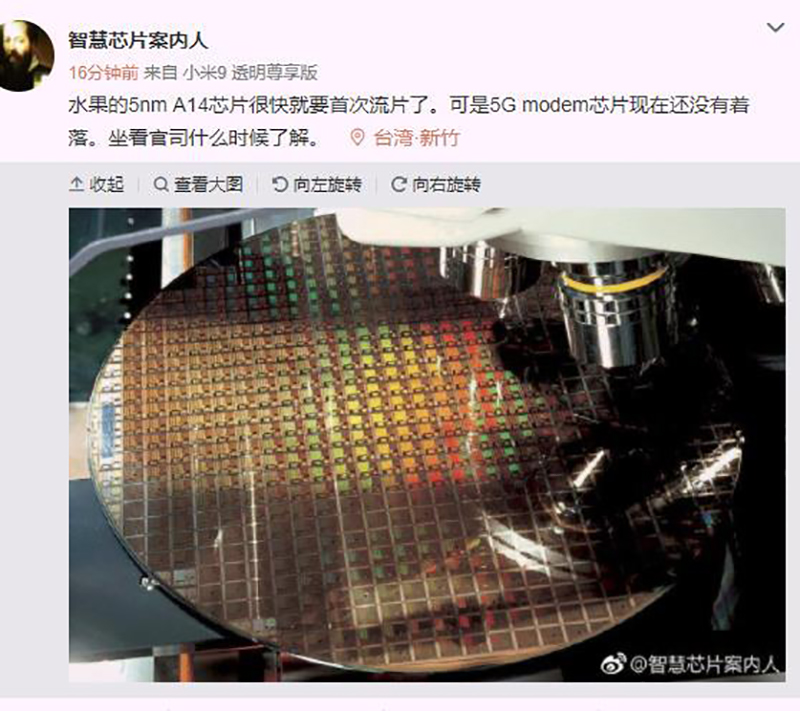Over the past year, Apple launched the Bionic A12 processor chip, which is based on the first TSMC 7nm manufacturing process. This year, the company plans to launch a new A13 chip that is also based on the 7nm process, but will be better optimized. The A13 chip is expected to have a 20% increase in chip density and 6-12% energy savings over the previous generation. Therefore, it can be said that the performance of the iPhone 2019 generation will not have major breakthroughs compared to the current iPhone XS. iPhone 2018 set itself apart from the competition with the performance of its 7nm A12 bionic chips. During this year TSMC, Apple’s supplier will use Extreme Ultraviolet Lithography (EUV) to produce the 7nm A13 chips and next year make the transition to 5nm with SOC A14.
A14 at 5nm will be a breakthrough
Despite the technology change in the production of this year’s A13, no significant improvements over the predecessor are expected. According to the latest statistics, Apple would have increased processor density by 20%, while energy efficiency would have increased between 6 and 12%. The A14 is manufactured in 5nm EUV and there is already some information on what to expect.
Speed is reported to have increased from 14.7% to 17.1% compared to the A13. In addition, the transistor density would increase between 1.8 and 1.86 times. With the A14’s R&D work completed, Apple looks set to begin verification before mass production begins. However, it could take more than a year for production of the expected A14 to begin, as all testing must be done with the new process.
